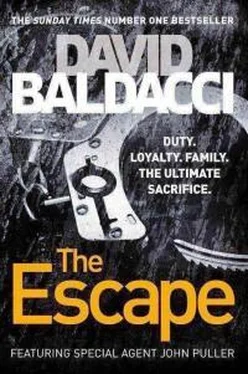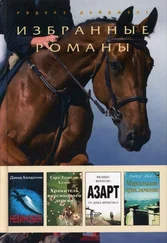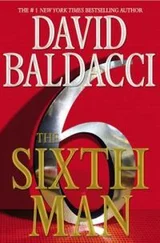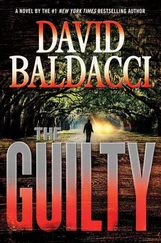So they still think I might be around here? Interesting.
He really didn’t believe this. The Army was simply covering its ass. The DB had just suffered its first setback. A presence on the street was to be expected. He returned his gaze to the screen and kept typing away, creating his version of a symphony, built note by note, measure by measure, and movement by sly movement.
When the contents of the screen dissolved and then reemerged as something entirely new, he closed his laptop and stood. What he had just gained access to was not meant to be read at the neighborhood Starbucks.
And while he had used plain-Jane Wi-Fi that was basically open to anyone, his laptop was firing off scramblers of such strength that any punk with an electronic mitt trolling for credit card numbers and accompanying PINs would be left with something so garbled that it would look like a trillion-piece digital puzzle without a handy picture to go by.
But still, there were protocols. And though he no longer wore the uniform, Puller intended to abide by these rules to the extent he could. It was part of who he was, who he would always be. They said the uniform made the man. Well, actually, it did. But that statement had nothing to do with clothing. It was all inside of you.
Now was the time for exploration and perhaps a drive. For that he needed wheels. He wasn’t going to do a rental. He was going to write a check for a 2004 Chevy Tahoe pickup in the lot of a used-car dealer the next block over. He’d looked at it earlier while taking a break from his hacking.
It took an hour of dickering and filling out the paperwork. Then he climbed into his new ride, started it up – the eight-cylinder power plant sparking gloriously to life – and drove off. He flicked a wave to the salesman, who’d probably cleared enough of a commission to splurge on a nice meal for himself and the missus, photos of whom Puller had been shown during the course of their negotiation, probably to soften him up.
It hadn’t worked. Prison did not soften you up. It made you a piece of rock.
Next mission: obtaining quarters. Where he could read in peace.
And then he could get this thing rolling.
Robert Puller dearly hoped it had been worth the years-long wait.
JOHN PULLER KNEW that flying was out, because ticket purchases by credit card could be traced, and he figured a number of computerized eyeballs would be pointed his way. Trains were out of the question for the same reason, not that there were any convenient ones anyway that would take him where he needed to go in a timely manner. A bus might have worked, but he would need wheels locally, and getting a rental left an electronic trail as well. That limited his options to a car – his. Well, his military-issued sedan. But he would pay for the fuel.
His destination in Kansas would take about twenty hours if he stopped along the way, which he intended to do to see if anyone was following him. The suit and stars might have wanted to make him their hunting dog for any number of reasons, ferreting out an escapee instead of a quail. But Puller didn’t want to be stupid about it, or put himself at unnecessary risk.
He packed up his duffel and his cat and left at midnight. This was not unusual for him. He often headed out at odd hours, mainly because soldiers didn’t tend to commit major crimes on a strict timetable. Most of them, in fact, were done at night, often after too many beers and too many insults. Turning the other cheek had been strictly left out of all Army manuals.
The important point was that any persons tailing him now would have to show themselves by their headlights. He saw none over the first two miles on meandering roads and quickly made his way to the interstate and started his trip due west. He stopped to eat twice, first breakfast at a Cracker Barrel in Kentucky and then dinner at a packed roadside grill named The Grease Bowl somewhere in Missouri.
He was not in uniform and didn’t plan to be while he was on leave. He had his ID and official credentials, to be sure. He had his weapons, because if he didn’t have his weapons then he must be dead and someone had forgotten to tell him. And he had some investigative tools that had made their way into his duffel, along with some fresh clothes and other travel essentials. What he didn’t have was a good idea of what he hoped to accomplish by going to the scene of his brother’s escape.
Escaped prisoners from an Army installation could certainly be within the purview of the CID regardless of which branch they’d been in. Technically, his brother was no longer a member of the military. Along with his conviction had come a dishonorable discharge – standard procedure. Bad guys didn’t get to wear the uniform anymore.
Yet because Robert Puller had been convicted of national security crimes, responsibility for his case fell largely to the special agents of Army Counterintelligence and the FBI. However, Puller had worked on parallel investigations with both agencies and considered them highly capable. Good for them, perhaps bad for his brother. But he had to stop thinking that way. What was bad for his brother was good for him and the rest of the country.
Easy to think, harder to execute, because the brothers had been inordinately close all their lives, due to their father’s all-consuming military career and a largely absent mother. John Puller had looked to his older brother for advice on all important decisions in his life, from asking a girl out to what position to play on the high school football team, from much-needed help on a physics exam in his junior year of college to the most appropriate way to approach their father about his decision not to go to West Point and become an officer. It was Bobby’s advice, all of it good and on point and well-intentioned, that had helped make Puller what he was today, for better or worse. And now that mentor was suddenly his enemy?
The first time he had visited Bobby at the DB it had seemed as though an enormous mistake had been committed, but that it would be corrected in the near future. The two brothers, both tall and well built, though John was the taller and stronger of the two, had sat across from each other in the visitors’ room and Puller had talked and Bobby had listened. And then Bobby had talked and Puller had listened. Then as the visits had continued over more than two years, and his brother’s status in prison had gelled to a permanency that seemed unshakable, Puller increasingly could think of nothing to say. It was as though the man he was facing had his brother’s face but that was all. The person he’d known all his life could not be in there. He could not be in this place convicted of treason. Yet there he was.
When they had last parted company, Puller had shaken his brother’s hand, but had felt no connection to him at all. It was an impersonator, he had thought at the time. It had to be.
This simply could not be his brother.
It was true that Bobby had helped his little brother, via phone, prevent a disaster of enormous proportions during his investigation into the murder of a military family in West Virginia. For that, his brother became the only prisoner at the DB ever to receive a commendation for service to his country. And when their aunt had been found murdered in Florida his brother had offered him both commiseration and counsel. That had thawed their relationship somewhat, but nothing could overcome the fact that one of them lived behind bars.
Used to live behind bars , Puller reminded himself, as he crossed the border into Kansas at around ten p.m. the night after leaving Virginia. It was dark and his options were limited. He didn’t want to stay where he usually did when visiting his brother at the DB. That would be too easy for others to find out and follow him from there.
Читать дальше












